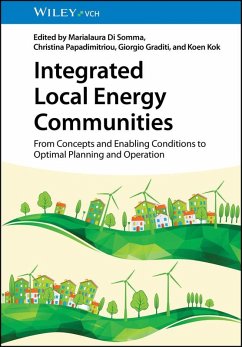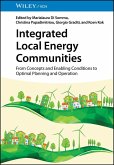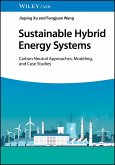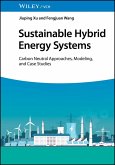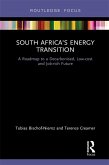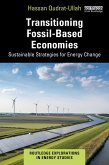Introducing a framework for obtaining and maintaining renewable energy security at the local community level
Local energy communities are a framework for assembling and coordinating major stakeholders, individual, corporate, and institutional, in the pursuit of long-term renewable energy and carbon-free projects in a given area. They are aimed at community benefits rather than profit, and have become an invaluable tool in the fight to reimagine the global energy grid, one community at a time. With climate change making this fight ever more urgent, integrated local energy communities (ILECs) that enhance the previous concept through a multi-carrier systems' approach have never been a more important social force.
Integrated Local Energy Communities offers a framework for designing, planning, and operating communities from end to end. Incorporating regulatory and policy issues, the mechanics of local multi-carrier energy systems, social aspects and more, it provides viable solutions to one of the most urgent energy challenges of our time. The result is an indispensable contribution to a potentially transformative process.
Integrated Local Energy Communities readers will also find:
Integrated Local Energy Communities is ideal for energy engineers, electrical engineers, mechanical engineers, engineering scientists working in consultancy and industry, as well as the libraries that serve them.
Local energy communities are a framework for assembling and coordinating major stakeholders, individual, corporate, and institutional, in the pursuit of long-term renewable energy and carbon-free projects in a given area. They are aimed at community benefits rather than profit, and have become an invaluable tool in the fight to reimagine the global energy grid, one community at a time. With climate change making this fight ever more urgent, integrated local energy communities (ILECs) that enhance the previous concept through a multi-carrier systems' approach have never been a more important social force.
Integrated Local Energy Communities offers a framework for designing, planning, and operating communities from end to end. Incorporating regulatory and policy issues, the mechanics of local multi-carrier energy systems, social aspects and more, it provides viable solutions to one of the most urgent energy challenges of our time. The result is an indispensable contribution to a potentially transformative process.
Integrated Local Energy Communities readers will also find:
- Comprehensive coverage of all types of energy conversion technologies and processes
- Analysis of the entire value chain, from concepts to planning and operation
- Discussion of all key factors for integrating the ILEC energy paradigm
Integrated Local Energy Communities is ideal for energy engineers, electrical engineers, mechanical engineers, engineering scientists working in consultancy and industry, as well as the libraries that serve them.
Dieser Download kann aus rechtlichen Gründen nur mit Rechnungsadresse in D ausgeliefert werden.

